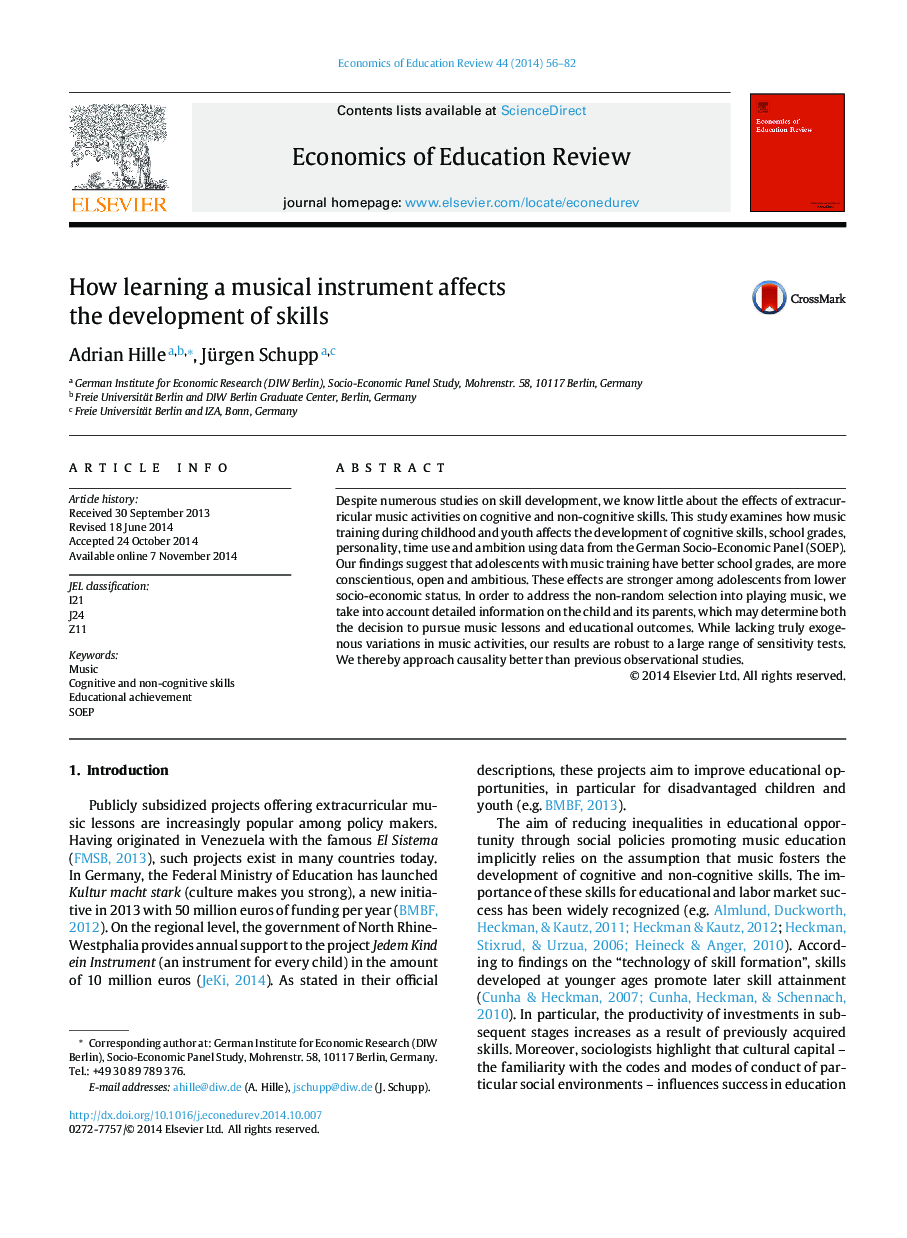| کد مقاله | کد نشریه | سال انتشار | مقاله انگلیسی | نسخه تمام متن |
|---|---|---|---|---|
| 354366 | 1434819 | 2015 | 27 صفحه PDF | دانلود رایگان |
• The paper studies the effects of music training during adolescence in Germany.
• Results suggest that adolescents with music training have higher school grades.
• Adolescents with music training are more conscientious, open and ambitious.
• Outcome differences are larger among adolescents with lower socio-economic status.
• Our findings are robust to a wide range of sensitivity analyses.
Despite numerous studies on skill development, we know little about the effects of extracurricular music activities on cognitive and non-cognitive skills. This study examines how music training during childhood and youth affects the development of cognitive skills, school grades, personality, time use and ambition using data from the German Socio-Economic Panel (SOEP). Our findings suggest that adolescents with music training have better school grades, are more conscientious, open and ambitious. These effects are stronger among adolescents from lower socio-economic status. In order to address the non-random selection into playing music, we take into account detailed information on the child and its parents, which may determine both the decision to pursue music lessons and educational outcomes. While lacking truly exogenous variations in music activities, our results are robust to a large range of sensitivity tests. We thereby approach causality better than previous observational studies.
Journal: Economics of Education Review - Volume 44, February 2015, Pages 56–82
